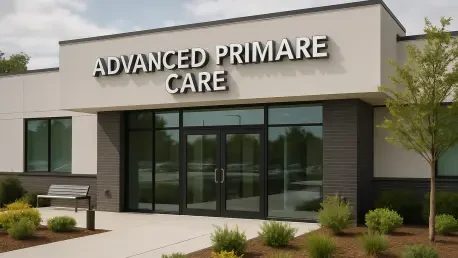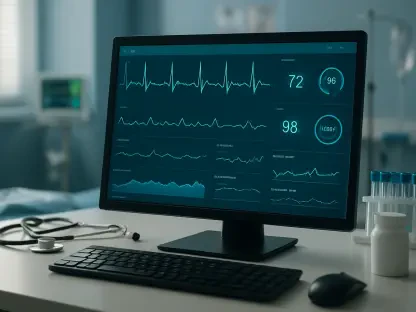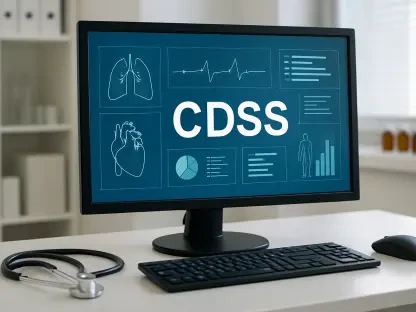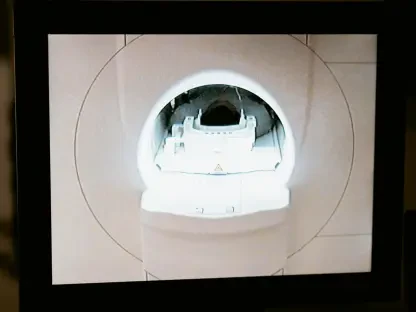In a groundbreaking advancement in healthcare, Cadence and the Centers for Medicare and Medicaid Services (CMS) have unveiled an innovative approach to primary care. This new model, known as the Advanced Primary Care Model (APCM), leverages artificial intelligence and connected devices to revolutionize primary care services. Amidst decreasing reimbursement rates for physicians, especially those in primary care, such innovation has become crucial. Primary care providers are essential in identifying chronic conditions, administering annual wellness checks, and addressing mental health and substance use issues. This initiative seeks to bridge pressing gaps in healthcare by utilizing technology to enhance care quality while ensuring greater accessibility for patients.
Cadence Aligns with CMS Strategic Vision
The Role of Enhanced Payment Models
Cadence’s efforts align seamlessly with CMS’s strategic push to improve access to primary care through groundbreaking models. In November 2024, the Advanced Primary Care Model (APCM) was introduced to optimize longitudinal primary care for Medicare recipients. A novel component of this model is the new payment methodology—a monthly bundled payment structure—that fosters enduring provider-patient relationships. Under this arrangement, practices are incentivized through coverage for an extensive range of services, including round-the-clock care team access, expedited coordination after hospital discharges, home visits, extended hours, and secure messaging opportunities. This approach aims to better reflect codes associated with chronic care management and principal care management, which have historically been underutilized.
Navigating Care Challenges Through Innovation
A critical element of the APCM is its acknowledgment of often-overlooked healthcare functions, such as virtual patient interactions, team-based collaboration, and managing patients with acute, complex issues. These aspects are currently inadequately addressed by existing healthcare codes, as highlighted by CMS in its CY2025 Physician Fee Schedule (PFS) proposed rule. Cadence, known for its expertise in remote monitoring since 2021, has proactively engaged with CMS to develop this advanced model, positioning itself as a leader in shifting primary care paradigms. By bridging the gaps in recognition and reimbursement, Cadence ensures significant functions become integral to primary care, transforming how healthcare services are delivered and received across the nation.
Rapid Adoption and Implementation
Scaling Up with Advanced Technology
The introduction of billing codes for remote monitoring in recent years significantly increased its adoption, growing from a Medicare program expenditure of millions to nearly $200 million just this past year. This immense growth prompted debates about whether additional regulations were necessary. Nonetheless, the robustness of Cadence’s APCM has allowed for faster scalability, enrolling 1,000 patients within just two months, a marked improvement compared to the gradual growth under previous remote monitoring protocols. This rapid expansion underscores how the APCM is designed for systemic applications, focusing on practice-level enhancements, which in turn, streamline and optimize patient care.
Proactive Care through AI-Driven Systems
Under APCM’s structure, physicians oversee a Medicare beneficiary’s comprehensive care, facilitated by a bundled, prospective monthly payment. Cadence simplifies this coordination process through its AI-driven Proactive Care Engine, which intelligently identifies care gaps within patients’ electronic health records. It sets achievable care goals based on detailed analysis of historical and present data, enabling patients to prioritize objectives they wish to pursue. Daily prompts support progress, making patients’ engagement with their care goals more consistent. The system integrates seamlessly with major EMRs such as Epic, continuously monitoring records to address gaps, thus providing a concierge-level care experience on a Medicare scale.
Enhancing Patient Experience and Outcomes
Partnerships and System Integration
Cadence’s APCM has established valuable partnerships with leading health systems like Lifepoint Health and Community Health Systems. These collaborations aim to expand its reach rapidly to other health systems. Cadence ensures the new model retains a patient-centric focus, making simplicity and accessibility its hallmarks. The AI-driven prompts guide patients in adhering to their care plans, involving efforts in exercise, medication compliance, and nutritional guidance. This technology-driven support encourages patients to stay on course with their health goals, effectively addressing the broader spectrum of health needs, including social determinants such as transportation and food security.
Empowering Patients through Personalized Care
According to CEO Chris Altcheck, on average, patients start with around four and a half care goals and achieve about 30% of them within the first 90 days. These goals encompass a range of objectives, including preventative measures, specific condition management, and lifestyle adjustments. This approach not only prioritizes traditional primary care aspects but also adopts a holistic view, ensuring comprehensive well-being. By empowering patients through proactive, personalized care, the APCM aims to foster healthier populations and more satisfactory patient experiences, ultimately redefining the primary care narrative for Medicare beneficiaries.
Path Forward for Healthcare Innovation
In a significant leap forward for healthcare, Cadence and the Centers for Medicare and Medicaid Services (CMS) have introduced a pioneering method in primary care, the Advanced Primary Care Model (APCM). This model taps into artificial intelligence and connected devices to transform how primary care is delivered. With decreasing reimbursement rates for doctors, particularly those in primary care, driving change is vital. Primary care professionals play a crucial role in detecting chronic illnesses, conducting annual wellness exams, and managing mental health and substance use issues. The APCM strives to close significant gaps in health services through technology, aiming to boost care quality while making it more accessible for patients. By harnessing advanced tools, the initiative provides a strategic approach to tackle key challenges in healthcare, ensuring that primary care adapts to contemporary demands and patient needs, while addressing overarching healthcare concerns.









